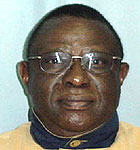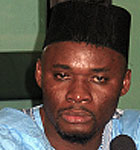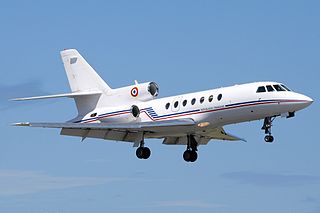Related Research Articles

The International Criminal Tribunal for Rwanda was an international court established in November 1994 by the United Nations Security Council in Resolution 955 in order to adjudicate people charged for the Rwandan genocide and other serious violations of international law in Rwanda, or by Rwandan citizens in nearby states, between 1 January and 31 December 1994. The court eventually convicted 61 individuals and acquitted 14.

Juvénal Habyarimana was a Rwandan politician and military officer who was the second president of Rwanda, from 1973 until his assassination in 1994. He was nicknamed Kinani, a Kinyarwanda word meaning "invincible".

The Rwandan genocide, also known as the genocide against the Tutsi, occurred from 7 April to 19 July 1994 during the Rwandan Civil War. Over a span of around 100 days, members of the Tutsi ethnic group, as well as some moderate Hutu and Twa, were systematically killed by Hutu militias. While the Rwandan Constitution states that over 1 million people were killed, most scholarly estimates suggest between 500,000 and 662,000 Tutsi died. The genocide was marked by extreme violence, with victims often murdered by neighbors, and widespread sexual violence, with between 250,000 and 500,000 women raped.

Théoneste Bagosora was a Rwandan military officer. He was chiefly known for his key role in the 1994 Rwandan genocide for which he was sentenced to life imprisonment by the International Criminal Tribunal for Rwanda (ICTR). In 2011, the sentence was reduced to 35 years' imprisonment on appeal. He was due to be imprisoned until he was 89. According to René Lemarchand, Bagosora was "the chief organizer of the killings". On 25 September 2021, he died in a prison hospital in Mali, where he was being treated for heart issues.

Radio Télévision Libre des Mille Collines (RTLM), nicknamed "Radio Genocide" or "Hutu Power Radio", was a Rwandan radio station which broadcast from July 8, 1993, to July 31, 1994. It played a significant role in inciting the Rwandan genocide that took place from April to July 1994, and has been described by some scholars as having been a de facto arm of the Hutu government.

Pauline Nyiramasuhuko is a Rwandan politician who was the Minister for Family Welfare and the Advancement of Women. She was convicted of having incited troops and militia to carry out rape during the Rwandan genocide of 1994. She was tried for genocide and incitement to rape as part of the "Butare Group" at the International Criminal Tribunal for Rwanda (ICTR) in Arusha, Tanzania. In June 2011, she was convicted of seven charges and sentenced to life imprisonment. Nyiramasuhuko is the first woman to be convicted of genocide by the ICTR, and the first woman to be convicted of genocidal rape.
Agathe Kanziga Habyarimana, néeKanziga is the widow of former President of Rwanda Juvénal Habyarimana and former First Lady of Rwanda from 1973 until 1994. Kanziga is part of both Tutsi and Hutu lineage that long ruled an independent principality until the late nineteenth century. She was arrested by French authorities on 2 March 2010 in France following the visit of French President Nicolas Sarkozy to Rwanda.
Simon Bikindi was a Rwandan musician and singer who was formerly very popular in Rwanda. His patriotic and nationalist songs were playlist staples on the national radio station Radio Rwanda during the Rwandan Civil War. For his actions during the Rwandan genocide, he was tried and convicted for incitement to genocide by the International Criminal Tribunal for Rwanda (ICTR) in 2008. He died of diabetes at a Beninese hospital in December 2018.

Hassan Ngeze is a Rwandan journalist and convicted war criminal best known for spreading anti-Tutsi propaganda and Hutu superiority through his newspaper, Kangura, which he founded in 1990. Ngeze was a founding member and leadership figure in the Coalition for the Defence of the Republic (CDR), a Rwandan Hutu Power political party that is known for helping to incite the genocide.

The Akazu was an informal organization of Hutu extremists whose members contributed strongly to the 1994 Rwandan genocide. A circle of relatives and close friends of Rwanda's then-president Juvénal Habyarimana and his influential wife Agathe Habyarimana, they were also called the Zero Network, for their goal of a Rwanda with zero Tutsi.
Félicien Kabuga is a Rwandan businessman and genocide suspect who played a major role in the run-up to the Rwandan genocide. A multimillionaire, he was closely connected to dictator Juvénal Habyarimana's Hutu nationalist MRND party and the Akazu, an informal group of Hutu extremists who helped lead the Rwandan genocide.
Tharcisse Renzaho is a Rwandan soldier, former politician and war criminal. He is best known for his role in the 1994 genocide against the Tutsi.
Callixte Nzabonimana is a former Rwandan politician who is accused of participating in the Rwandan genocide.

Protais Mpiranya, also known as Sambao Ndume, was a Rwandan military officer and war criminal who was internationally wanted for his alleged role in the Rwandan genocide. Regarded as Rwanda's most wanted fugitive, he was described in 2022 as "one of the world’s most brutal killers", and was internationally recognised as the most sought génocidaire.
Augustin Ndindiliyimana is a former Rwandan General and Chief of the Rwandan National Gendarmerie. He was convicted of genocide by the International Criminal Tribunal for Rwanda but he was acquitted by the tribunal upon appeal.

Kangura was a Kinyarwanda and French-language magazine in Rwanda that served to stoke ethnic hatred in the run-up to the Rwandan genocide. The magazine was established in 1990, following the invasion of the rebel Rwandan Patriotic Front (RPF), and continued publishing up to the genocide. Edited by Hassan Ngeze, the magazine was a response to the RPF-sponsored Kanguka, adopting a similar informal style. "Kangura" was a Rwandan word meaning "wake others up", as opposed to "Kanguka", which meant "wake up". The journal was based in Gisenyi.
Juvénal Uwilingiyimana (1951–2005) was a Rwandan politician. He held office as Commerce Minister and as the head of national parks. He was an ethnic Hutu and originated in Gisenyi prefecture. In 1989, he was appointed the Minister for Trade in the MRND government of Juvénal Habyarimana. In 1994 he became the director of national tourism in the provisional government following Habyarimana's assassination. The former Rwandan minister was collaborating with the Rwanda International Criminal Court (ICTR), which judges those responsible for the 1994 genocide, and had expressed fear for his life for his collaboration with the ICTR.
Ferdinand Nahimana is a Rwandan historian, who was convicted of incitement to genocide for his role in the 1994 Genocide against Tutsi in Rwanda.

On the evening of 6 April 1994, the aircraft carrying Rwandan president Juvénal Habyarimana and Burundian president Cyprien Ntaryamira, both Hutu, was shot down with surface-to-air missiles as their jet prepared to land in Kigali, Rwanda; both were killed. The assassination set in motion the Rwandan genocide, one of the bloodiest events of the late 20th century.
Joseph Nzirorera was a Rwandan politician and accused génocidaires who was arrested by the International Criminal Tribunal for Rwanda (ICTR) for his role in the Rwandan genocide.
References
- ↑ Des Forges, Alison (March 1999). Leave None to Tell the Story: Genocide in Rwanda – History → The Army, the Church and the Akazu. New York: Human Rights Watch. ISBN 1-56432-171-1.
- ↑ "ZIGIRANYIRAZO, PROTAIS (1938– )" in Aimable Twagilimana, ed., Historical Dictionary of Rwanda (2007), p. 175
- ↑ Picard, André (13 July 1994). "Rwandan leader lived in splendour". The Globe and Mail . Archived from the original on 19 February 2005. Retrieved 17 April 2008.
- ↑ Monsieur "Z" arrêté en Belgique, 28 July 2001 (in French)
- 1 2 Nancy A. Combs, Fact-Finding without Facts: The Uncertain Evidentiary Foundations of International Criminal Convictions (Cambridge University Press, 3 2010), p. 331
- ↑ PROTAIS ZIGIRANYIRAZO v. THE PROSECUTOR
- ↑ Yvonne McDermott, Fairness in International Criminal Trials (2016), p. 102